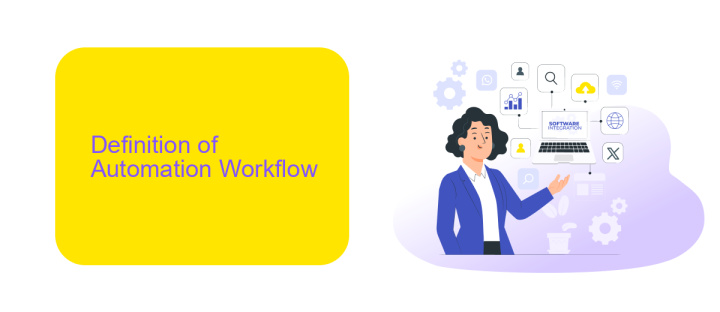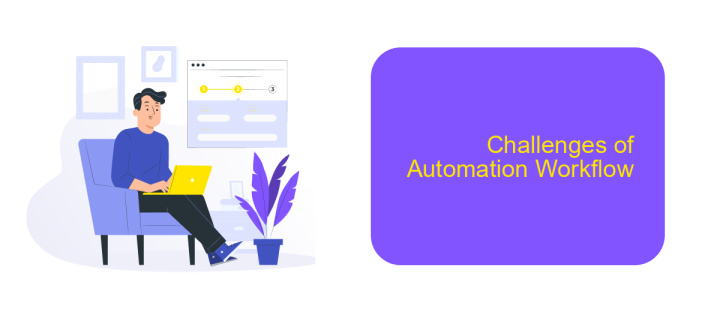What is Automation Workflow
Automation workflow refers to the sequence of tasks and processes that are automated to streamline operations and improve efficiency. By leveraging technology, businesses can minimize manual efforts, reduce errors, and ensure consistent outcomes. This article explores the fundamentals of automation workflow, its benefits, and how it can be implemented to enhance productivity in various industries.
Introduction
Automation workflow is a crucial component in modern business operations, streamlining repetitive tasks and enhancing productivity. By automating workflows, organizations can reduce human error, save time, and ensure consistency in their processes. This approach allows teams to focus on more strategic tasks, driving overall business growth and efficiency.
- Reduces manual effort and errors
- Enhances productivity and efficiency
- Ensures consistency in business processes
- Frees up time for strategic tasks
One of the key aspects of automation workflow is the integration of various tools and services to create a seamless operation. Services like ApiX-Drive facilitate these integrations by allowing businesses to connect different applications effortlessly. This enables data to flow smoothly between systems, further enhancing the automation process and ensuring that all parts of the business are synchronized and working efficiently.
Definition of Automation Workflow

Automation workflow refers to the process of creating a series of automated actions that are triggered based on predefined rules and conditions. This system aims to streamline repetitive tasks, reduce human error, and enhance overall efficiency. By leveraging automation, businesses can ensure that tasks are completed consistently and in a timely manner, freeing up valuable human resources for more strategic activities.
One of the key aspects of automation workflow is the integration of various tools and services to facilitate seamless data transfer and task execution. Services like ApiX-Drive play a crucial role in this integration process. ApiX-Drive allows users to connect different applications and automate the flow of information between them without the need for coding. This not only simplifies the setup process but also ensures that the workflow remains adaptable to changing business needs. By utilizing such services, organizations can achieve a more cohesive and efficient operational environment.
Benefits of Automation Workflow

Automation workflow offers numerous advantages that can significantly enhance the efficiency and effectiveness of business processes. By automating repetitive tasks, businesses can save valuable time and resources, allowing employees to focus on more strategic and creative activities.
- Increased Efficiency: Automation reduces the time required to complete tasks, leading to faster project completion and improved productivity.
- Consistency and Accuracy: Automated processes ensure that tasks are performed consistently and with high accuracy, minimizing the risk of human error.
- Cost Savings: By reducing the need for manual labor, businesses can lower operational costs and allocate resources more effectively.
- Scalability: Automation allows businesses to easily scale their operations without a proportional increase in labor costs.
- Improved Data Management: Automation workflows can seamlessly integrate with tools like ApiX-Drive, enabling efficient data transfer and management across different platforms.
Overall, implementing automation workflows can transform the way businesses operate, leading to enhanced performance, reduced costs, and greater flexibility. By leveraging tools like ApiX-Drive, businesses can streamline their processes and ensure seamless integration across various systems.
Challenges of Automation Workflow

Implementing automation workflows can significantly enhance operational efficiency, but it is not without its challenges. One of the primary difficulties lies in the initial setup and configuration. Ensuring that all systems and processes are correctly integrated requires meticulous planning and technical expertise.
Another challenge is maintaining and updating these workflows. As business needs evolve, so too must the automation processes. This necessitates continuous monitoring and adjustment to keep everything running smoothly, which can be resource-intensive.
- Compatibility issues between different software systems
- Data security and privacy concerns
- High initial investment costs
- Resistance to change from employees
To address some of these challenges, services like ApiX-Drive can be invaluable. ApiX-Drive simplifies the integration process by providing a user-friendly platform for connecting various applications and automating workflows, reducing the technical burden on your team. This enables businesses to focus on optimizing their operations rather than getting bogged down by integration complexities.
Conclusion
In conclusion, automation workflows are pivotal in enhancing efficiency and accuracy across various business processes. By streamlining repetitive tasks, organizations can allocate resources more effectively, reduce human error, and accelerate project timelines. The integration of automation tools, such as ApiX-Drive, further simplifies the process by seamlessly connecting different applications and services, ensuring smooth data transfer and communication.
As businesses continue to evolve, the adoption of automation workflows will become increasingly essential. Embracing these technologies not only fosters innovation but also provides a competitive edge in the market. By leveraging platforms like ApiX-Drive, companies can easily configure integrations and automate complex workflows, ultimately driving productivity and growth. Automation is not just a trend but a strategic necessity for future-ready enterprises.
- Automate the work of an online store or landing
- Empower through integration
- Don't spend money on programmers and integrators
- Save time by automating routine tasks
FAQ
What is an automation workflow?
How can automation workflows benefit my business?
What types of tasks can be automated in a workflow?
Do I need technical skills to set up an automation workflow?
How do I get started with creating an automation workflow?
Apix-Drive will help optimize business processes, save you from a lot of routine tasks and unnecessary costs for automation, attracting additional specialists. Try setting up a free test connection with ApiX-Drive and see for yourself. Now you have to think about where to invest the freed time and money!


